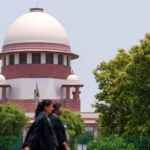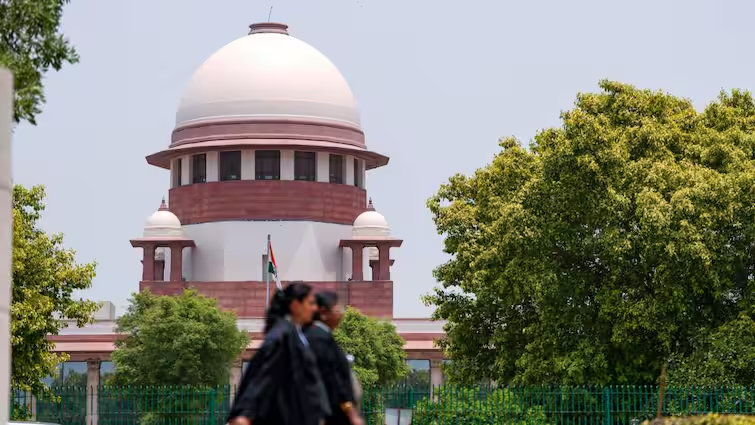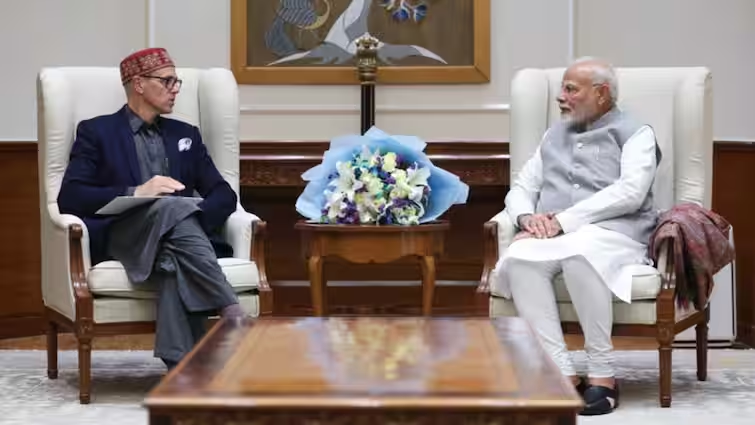Owaisi Tears Waqf Bill Copy in Lok Sabha, Calls It an Attempt to Humiliate Muslims
All India Majlis-e-Ittehadul Muslimeen (AIMIM) chief and Hyderabad MP Asaduddin Owaisi staged a symbolic protest against the Waqf (Amendment) Bill, 2025. He expressed strong opposition to the proposed legislation, tearing a copy of the bill in the House while comparing his action to Mahatma Gandhi’s defiance against discriminatory laws in South Africa.
लोकसभा में Waqf Amendment Bill पर मेरी स्पीच। इस सरकार ने मुसलमानों पर ऐलान ए जंग कर दिया है।pic.twitter.com/nh6IIiPymp
— Asaduddin Owaisi (@asadowaisi) April 2, 2025
A Protest Inspired by Mahatma Gandhi
Owaisi, in his speech, invoked the example of Mahatma Gandhi during his stay in South Africa, where he opposed the unjust laws imposed on people of color by the white regime. Referring to Gandhi’s act of defiance, Owaisi stated, “Mahatma Gandhi had said, ‘My conscience doesn’t accept this,’ and he tore it up.” He then followed suit by tearing the copy of the Waqf Bill, declaring, “Like Gandhi, I am also tearing up this law.”
Concerns Over the Waqf Bill
Owaisi strongly criticized the bill, calling it “unconstitutional” and a deliberate move by the ruling Bharatiya Janata Party (BJP) to create divisions in the country along religious lines. He argued that the bill would marginalize Muslims and weaken their rights, particularly in the management and administration of Waqf properties.
“This is unconstitutional. The BJP wants to create divisiveness in this country in the name of temples and mosques. I condemn this, and I request you to accept the 10 amendments,” Owaisi said in his address.
Furthermore, he accused the government of attempting to reduce Muslims to second-class citizens. “Yeh Bill ka maqsad sirf Musalmanon ko zaleel aur ruswa karna hai, Musalmanon ko dusre darje ka shehri banane ka inka maksad hai (The objective of this bill is to insult and humiliate Muslims and make Muslims second-class citizens),” he asserted.
Government’s Response: BJP Slams Owaisi’s Protest
BJP MP and Joint Parliamentary Committee (JPC) chief Jagdambika Pal strongly criticized Owaisi’s act of tearing up the bill, calling it an “unconstitutional” move. He questioned the rationale behind Owaisi’s actions, stating, “Asaduddin Owaisi calls the bill unconstitutional, but he has done the unconstitutional thing by tearing up the bill. I want to ask him why he tore the bill?”
Pal further expressed gratitude to the government for incorporating the recommendations of the JPC in the final draft of the bill, calling it a significant step forward. “This is not an ordinary thing,” he remarked, underlining that the amendments and inputs from the JPC had been taken into consideration in shaping the bill.
Implications of the Waqf (Amendment) Bill, 2025
The Waqf (Amendment) Bill, 2025, has stirred controversy, with opposition parties and community leaders arguing that it could weaken the rights of Muslims over Waqf properties. Waqf refers to the endowment of properties or assets for religious, charitable, or educational purposes under Islamic law. Any legal changes in its governance structure are likely to have a profound impact on how these properties are administered.
Owaisi’s protest reflects a broader concern among many in the Muslim community, who fear that the proposed amendments may diminish their ability to manage and control Waqf assets. On the other hand, the BJP and its allies maintain that the bill is necessary for greater transparency, accountability, and efficiency in the administration of Waqf properties.
Political and Social Reactions
The tearing of the bill in Parliament sparked mixed reactions from political leaders and social commentators. While some opposition parties supported Owaisi’s stance, arguing that the bill discriminates against Muslims, others criticized his method of protest as disrespectful to parliamentary proceedings.
Several Muslim organizations and community leaders have also voiced concerns over the bill, calling for further consultations and amendments to ensure that it does not infringe upon their religious rights. At the same time, supporters of the bill argue that reforms are necessary to prevent corruption and mismanagement within Waqf institutions.
A Contentious Debate Continues
The debate over the Waqf (Amendment) Bill, 2025, is far from over, with both sides firmly holding their ground. Owaisi’s symbolic act of tearing the bill has drawn attention to the concerns of the Muslim community, while the BJP insists that the bill is meant for reform and better governance. The coming days will likely witness further discussions, protests, and possible legal challenges regarding the bill’s implementation.
As the political storm surrounding the bill intensifies, it remains to be seen whether any amendments will be made to address the concerns raised by the opposition or if the government will push ahead with its current version. For now, the issue continues to be a flashpoint in India’s political and social discourse.















